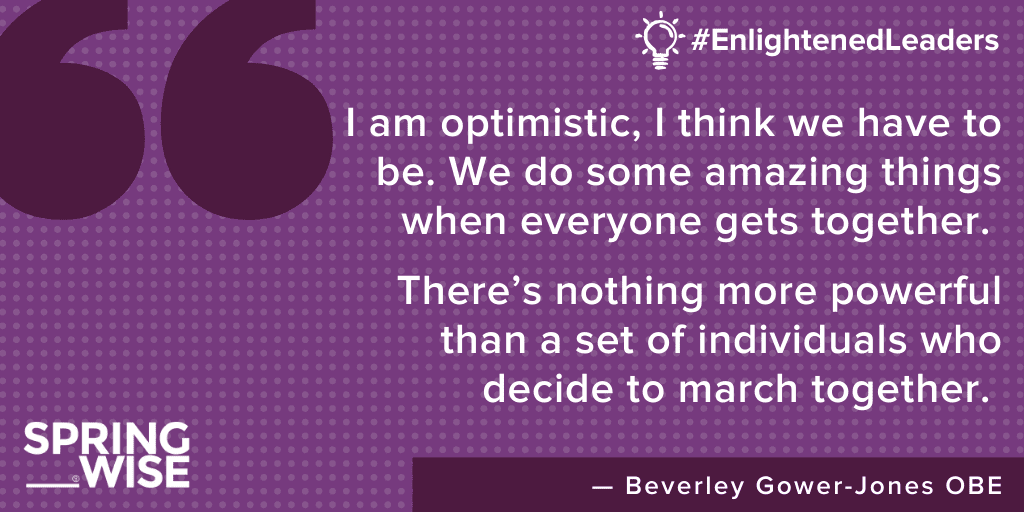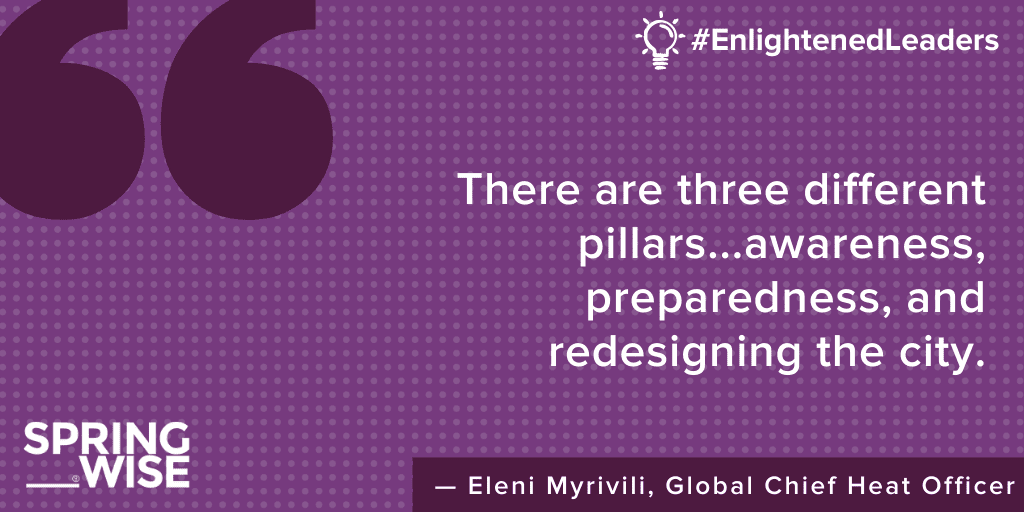Enlightened leaders: Beverley Gower-Jones OBE
Beverley Gower-Jones is Managing Partner of the Clean Growth Fund, CEO of business incubation consultancy Carbon Limiting Technologies and an independent member of the UK cross-government Net Zero Innovation Board. We talk to her about accelerating the rate of net-zero innovation.
Interview
“We have a broken investment ladder. Entrepreneurs and CEOs spend all their time trying to raise funding instead of focusing on their business plans.”
I’m sitting down with Beverley Gower-Jones at the London Climate Technology Show, and we are surrounded by the hum of founders and attendees busy networking at the various stands in the exhibition space, looking to make connections and secure business. The Clean Growth Fund stand – where Beverley is Managing Partner – has been busy all day. Unsurprising as its focus is to empower early-stage entrepreneurs with ‘expert capital to tackle the climate crisis’.
“What we need,” she says, “is a joined-up ‘escalator’ that connects early-stage funding and money all the way to Series E and beyond. All that time that’s wasted fundraising adds three to four years to maturation, which is time we don’t have.”
Beverley is uniquely placed to comment on the urgency of the need to get to net zero. She received an OBE this year for services to Net Zero Innovation. A geologist by training, she started her career at Shell in the mid-80s, rising to become a founder and Vice President at Shell Technology Ventures where she was instrumental in defining Shell’s technology-venturing strategic approach.
“I remember having a heated debate with colleagues at Shell about whether we would be known as living in the ‘age of communication’ or the ‘age of pollution’. I was so strongly on the age of pollution side, and voicing it helped me to decide that I wanted to do something about it. I’m really grateful to Shell because the things I learned in the 20-odd years I was there was all about the energy industry and that knowledge really influences the way I think about the energy transition, and it is a transition.
“It also taught me about commercialisation.” She stresses: “An idea has to be commercial and economic for a business to be able to invest in it and for it to be successful.”
Both the IPCC AR6 Synthesis Report, published earlier this year and the recent United Nations stocktaking report highlight the fact that we already have innovative solutions with potential, but there is a lack of financing to scale them. Earlier in the day, during her talk Beverley stated that “Return on capital and return on carbon are the same thing – we only reduce greenhouse gas emissions if these technologies scale beyond our wildest dreams.”
The struggle to scale
So where are the blockers? “One of them is in the institutional investors in the pension funds not investing in specialist fund managers like the Clean Growth Fund. They tend to do what worked the year before, so a lot of that money goes internationally to listed funds where they know there is more certainty because there is a proven track record. It’s about talking and explaining the business case for investing in specialist fund managers that are looking to do sustainability investments.
“Other barriers are the timelines of some of these investments – they’re quite long. Nuclear fusion, wave or tidal…They need consistent funding over a long period of time. It’s not a government solution – government has a role to play but the private sector has a serious role to play as well in making that change.
“It’s about having multiple funds, and multiple types of funding at different stages. Some companies need a hybrid fund where they need equity into the core company, but they need debt to build the factory or process line or whatever it is. If you try and build a huge plant with equity it doesn’t work, it dilutes your founders and you can’t make the returns that you need to make. But building the first of anything is a risk.”
Beverley also has universities in her sights. “We our universities need to do more – they’ve always had teaching and research at the core of their charters, and now they need to have commercialisation at the core of their charters too, with a process in place to spin that research out.”

She’s impatient for the impact of clean technology innovation to be felt. “Being a geologist by background and a scuba diver, I can really see the deterioration of the planet and it really bothers me. I was never patient, it’s always ‘faster please!’”
But she is optimistic. “I am optimistic, I think we have to be. We do some amazing things when everyone gets together. There’s nothing more powerful than a set of individuals who decide to march together. If you look at the Mori polls, climate is one of the top three things that people are concerned about. Consistently. So it’s risen up the agenda.
“The fantastic innovation that I see from entrepreneurs gives me huge cause for hope. There are so many solutions and opportunities.”
And here at Springwise, we get to see these new, amazing solutions every day – take a look at them here and stay tuned to hear from more inspiring individuals like Beverley.
Words: Angela Everitt
Learn more about the Clean Growth Fund: cleangrowthfund.com








